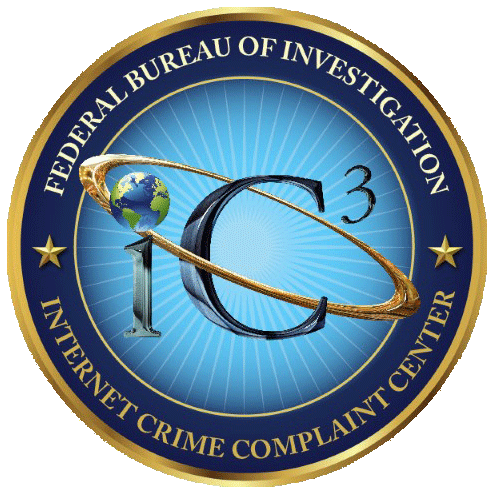Internet Crime Complaint Center on:
[Wikipedia]
[Google]
[Amazon]
 The Internet Crime Complaint Center (IC3) is a division of the
The Internet Crime Complaint Center (IC3) is a division of the
2012 Press Releases by the Internet Crime Complaint Center (IC3)
Intelligence Note Prepared by the Internet Crime Complaint Center (IC3)
January 20, 2012
New Internet Crime Initiative combines Resources, Expertise
2016 IC3 Annual Report
Computer security organizations Federal Bureau of Investigation Crime in the United States {{computer-security-stub
 The Internet Crime Complaint Center (IC3) is a division of the
The Internet Crime Complaint Center (IC3) is a division of the Federal Bureau of Investigation
The Federal Bureau of Investigation (FBI) is the domestic intelligence and security service of the United States and its principal federal law enforcement agency. Operating under the jurisdiction of the United States Department of Justice, ...
(FBI) concerning suspected Internet-facilitated criminal activity. The IC3 gives victims a convenient and easy-to-use reporting mechanism that alerts authorities of suspected criminal or civil violations on the Internet. The IC3 develops leads and notifies law enforcement
Law enforcement is the activity of some members of government who act in an organized manner to enforce the law by discovering, deterring, rehabilitating, or punishing people who violate the rules and norms governing that society. The term en ...
agencies at the federal, state, local and international level. Information sent to the IC3 is analyzed and disseminated for investigative and intelligence purposes to law enforcement and for public awareness.
History
The IC3 was founded in 2000 as the Internet Fraud Complaint Center (IFCC), primarily focusing on online fraud, such asintellectual property rights
Intellectual property (IP) is a category of property that includes intangible creations of the human intellect. There are many types of intellectual property, and some countries recognize more than others. The best-known types are patents, cop ...
matters, computer intrusion
A security hacker is someone who explores methods for breaching defenses and exploiting weaknesses in a computer system or network. Hackers may be motivated by a multitude of reasons, such as profit, protest, information gathering, challenge ...
s, economic espionage
Industrial espionage, economic espionage, corporate spying, or corporate espionage is a form of espionage conducted for commercial purposes instead of purely national security.
While political espionage is conducted or orchestrated by governme ...
, online extortion, international money laundering
Money laundering is the process of concealing the origin of money, obtained from illicit activities such as drug trafficking, corruption, embezzlement or gambling, by converting it into a legitimate source. It is a crime in many jurisdictions ...
, identity theft
Identity theft occurs when someone uses another person's personal identifying information, like their name, identifying number, or credit card number, without their permission, to commit fraud or other crimes. The term ''identity theft'' was co ...
, and other Internet-facilitated crimes.
With the realization that crimes facilitated online have a chance to overlap with other crimes, and that not all crimes committed or facilitated online are just fraud, the IFCC was renamed to the Internet Crime Complaint Center in October 2003 to better reflect the broad character of such matters, and to minimize the need for one to distinguish online fraud from other potentially overlapping cyber crimes.
See also
*List of convicted computer criminals
Convicted computer criminals are people who are caught and convicted of computer crimes such as breaking into computers or computer networks. Computer crime can be broadly defined as criminal activity involving information technology infrastruc ...
References
External links
*2012 Press Releases by the Internet Crime Complaint Center (IC3)
Intelligence Note Prepared by the Internet Crime Complaint Center (IC3)
January 20, 2012
New Internet Crime Initiative combines Resources, Expertise
FBI
The Federal Bureau of Investigation (FBI) is the domestic Intelligence agency, intelligence and Security agency, security service of the United States and its principal Federal law enforcement in the United States, federal law enforcement age ...
, September 24, 2013
2016 IC3 Annual Report
Computer security organizations Federal Bureau of Investigation Crime in the United States {{computer-security-stub